Introduction to Mucomix 1gm Injection
Mucomix 1gm injection contains Acetylcysteine as its active ingredient and falls under the category of mucolytic agents. It is specifically employed in the treatment of paracetamol overdose, shielding the liver from the damage induced by elevated paracetamol levels. Administering this injection within the initial eight hours post-paracetamol overdose yields high effectiveness. Although its efficacy may diminish over time, it can still provide assistance within 24 hours of the overdose. Before initiating treatment, your doctor may conduct a blood test to monitor the paracetamol levels in your bloodstream.
Avoid Mucomix 1gm injection if you’re allergic to Acetylcysteine or its components. Prior to commencing treatment, inform your doctor about asthma, breathing difficulties, pregnancy, or breastfeeding. Notify your doctor if you’ve recently taken Mucomix 1gm injection, experienced any adverse reactions to this medicine, or follow a sodium-restricted diet, given that this medicine contains sodium. If pregnant or planning pregnancy, inform your physician and discuss fertility concerns. The administered volume should be adjusted for patients weighing less than 40kg or those requiring fluid restriction.
Uses of Mucomix 1gm Injection
- Treatment of Paracetamol overdose.
Therapeutic Effects of Mucomix 1gm Injection
Mucomix 1gm injection works by restoring glutathione levels in the body, which helps detoxify harmful substances like acetaminophen (paracetamol). Increasing glutathione levels protects the liver from damage caused by acetaminophen (paracetamol) overdose.
Interaction of Mucomix 1gm Injection with other drugs
Inform your doctor about any prescribed medications, over-the-counter medicines, nutritional or vitamin supplements, and herbal products you take or have taken before the treatment. Certain medications may interact with Mucomix 1gm injection and can cause undesirable side effects.
More Information about Mucomix 1gm Injection
- Keep out of sight and reach of pets and children.
- Do not store above 25°C.
- Do not self-administer.
How to consume Mucomix 1gm Injection
Mucomix 1gm injection will usually be diluted in glucose or sodium chloride solution and administered as an intravenous (vein) injection by a healthcare professional in a hospital setting. Your doctor will decide the dose, route of administration, and frequency based on your disease condition and other factors.
Safety Advices for Mucomix 1gm Injection

Pregnancy
Limited information is available on the use of Mucomix 1gm injection during pregnancy. Notify your healthcare professional if you are pregnant or planning to have a baby think you may be pregnant.

Breast Feeding
Limited information is available on using Mucomix 1gm during breastfeeding. So, before starting the treatment, inform your doctor if you are breastfeeding. Constant your doctor for more information.

Lungs
It is unknown whether Mucomix 1gm injection is safe for patients with lung problems. Inform your physician if you have any lung disease before starting the treatment. Contact your doctor if you experience any lung-related symptoms.

Liver
Inform your physician about any underlying liver disorders before taking this Mucomix 1gm injection and it should be used with caution in liver disease patients. Consult your physician before taking this medicine.

Alcohol
It is unknown whether consuming alcohol while taking a Mucomix 1gm injection is safe. Please speak with your physician.

Driving
Using Mucomix 1gm injection is not expected to impact your ability to drive or operate machinery significantly. However, if you experience any side effects, notify your doctor.
Side Effects of Mucomix 1gm Injection
.Side effects are unwanted symptoms caused by medicines. Even though all medicines cause side effects, not everyone gets them.
Serious:
- Swelling of the lips, tongue, or face
- Difficulty in breathing
- Wheezing
- Pain at the injection site
- Rash, itching
- Flushing
- Low or increased blood pressure
- Rapid heartbeat
- Dizziness
Common:
- Vomiting
- Nausea
- Fever
Word of Advice
Follow the prescribed dosage and administration instructions provided by your healthcare professional. Inform your doctor about any known allergies or medical conditions you have before receiving a Mucomix 1gm injection. If you experience any unexpected or severe side effects, such as difficulty breathing or an allergic reaction, seek immediate medical attention. Inform your healthcare provider about any other medications or supplements you are taking to avoid potential drug interactions. Do not self-administer or adjust the dosage without proper medical guidance. If you have any type of concerns about the treatment, consult your healthcare professional for information.
FAQs
Q 1. How long should I take Mucomix 1gm injection?
Your physician will decide the correct dosage and duration based on age, body weight, and disease condition. Follow the prescribed dosage and administration instructions provided by your healthcare professional. Only stop taking Mucomix 1gm injection if your doctor advises you to stop.
Q 2. How should Mucomix 1gm injection be used?
A well-trained physician or nurse should always inject intravenous (vein) injection into the patient. Kindly do not self-administer the Mucomix 1gm injection.
Q 3. What are the forms of Mucomix 1gm injection available in the market?
Mucomix 1gm injection is available in various forms, such as injections, capsules, tablets (both regular and effervescent), and oral solutions (sachet).
Q 4. What is the side effect of the Mucomix 1gm injection that has to be informed doctor immediately?
Side effects of Mucomix 1gm injection include swelling of the lips, tongue, or face, difficulty breathing, wheezing, pain at the injection site, rash, itching, flushing, low or increased blood pressure, rapid heartbeat, and dizziness.
Fact Box of Mucomix 1gm Injection
Molecule name: Acetylcysteine
Pharmacological class: Mucolytics agent
Therapeutic class: Antidote
Indications: Treatment of Paracetamol overdose.

 MEDICINES
MEDICINES PATIENT ASSISTANCE PROGRAMS
PATIENT ASSISTANCE PROGRAMS IMPORTED MEDICINES
IMPORTED MEDICINES CONTACT US
CONTACT US Upload
Upload

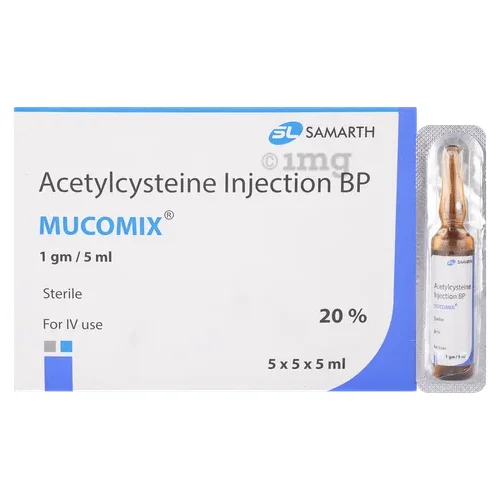


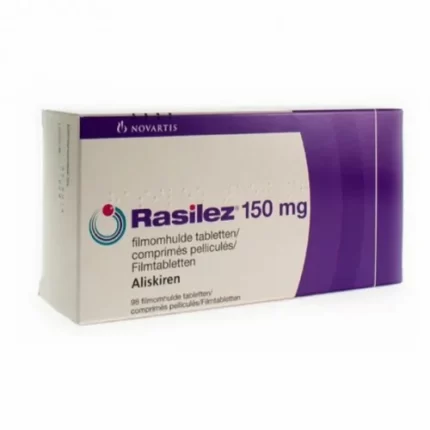

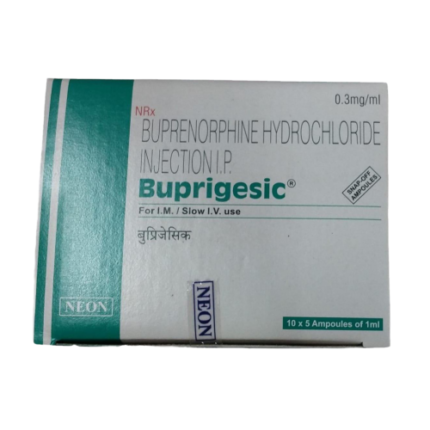
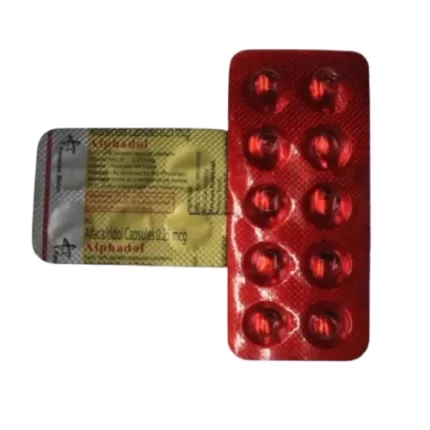
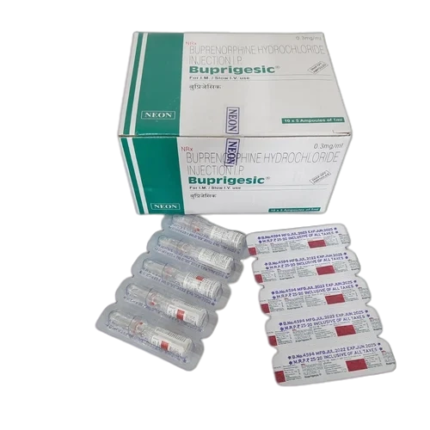
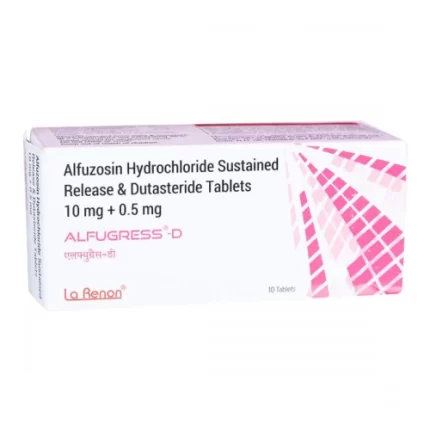


Reviews
There are no reviews yet.